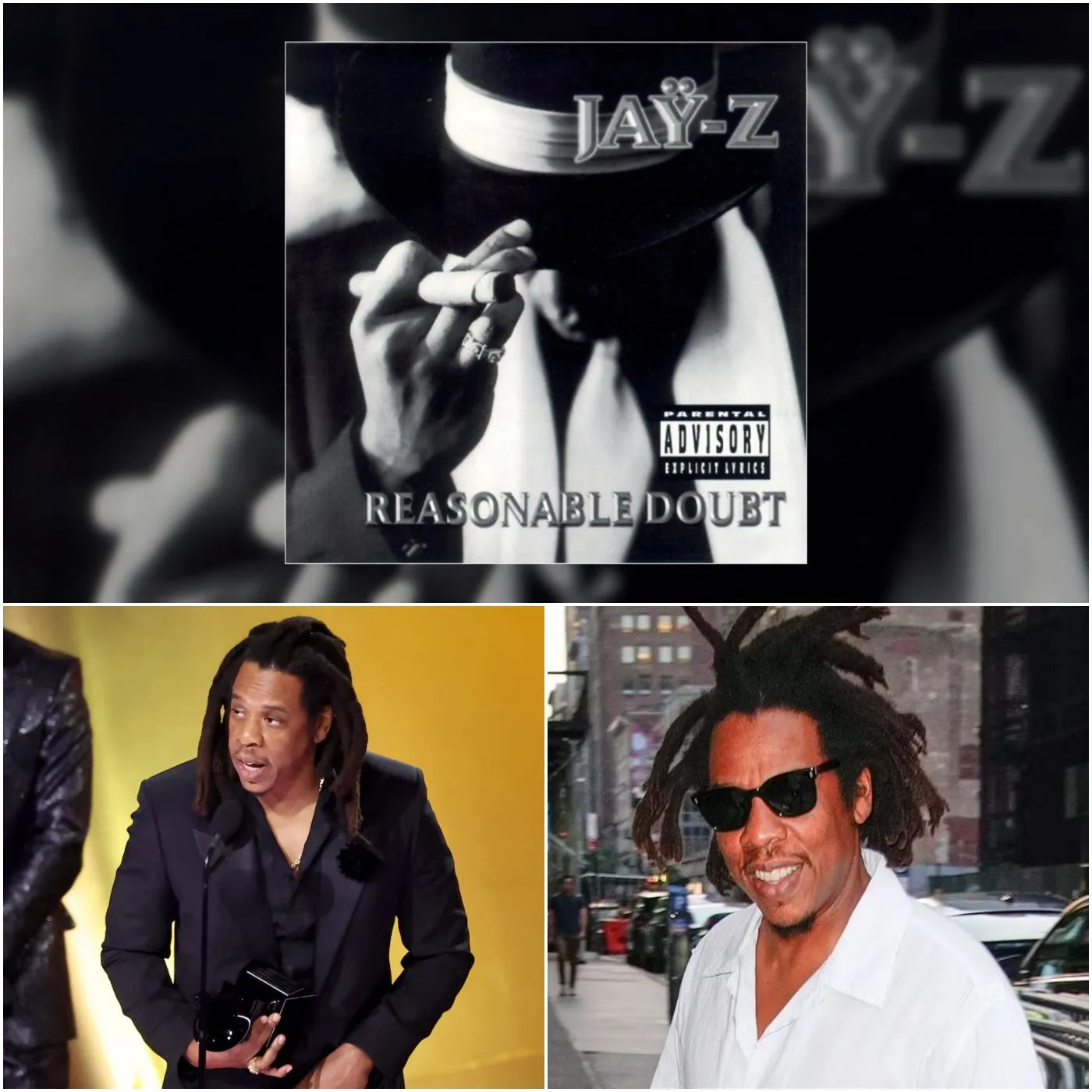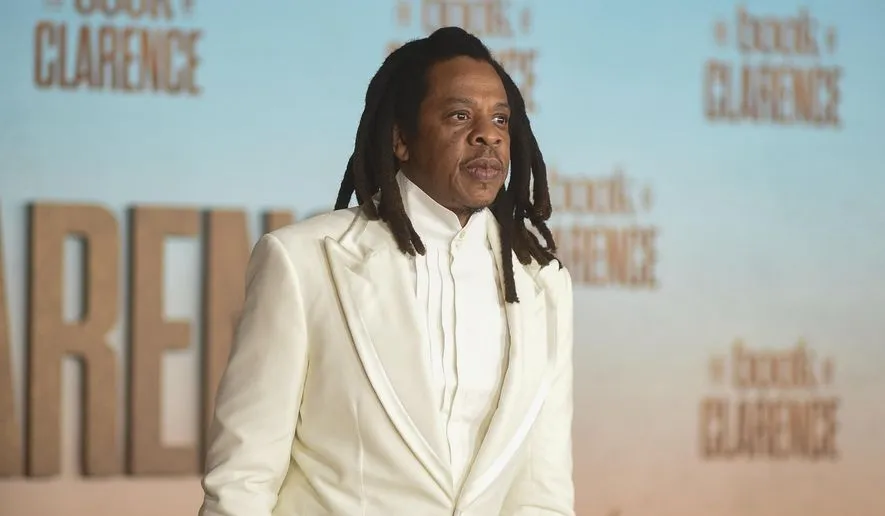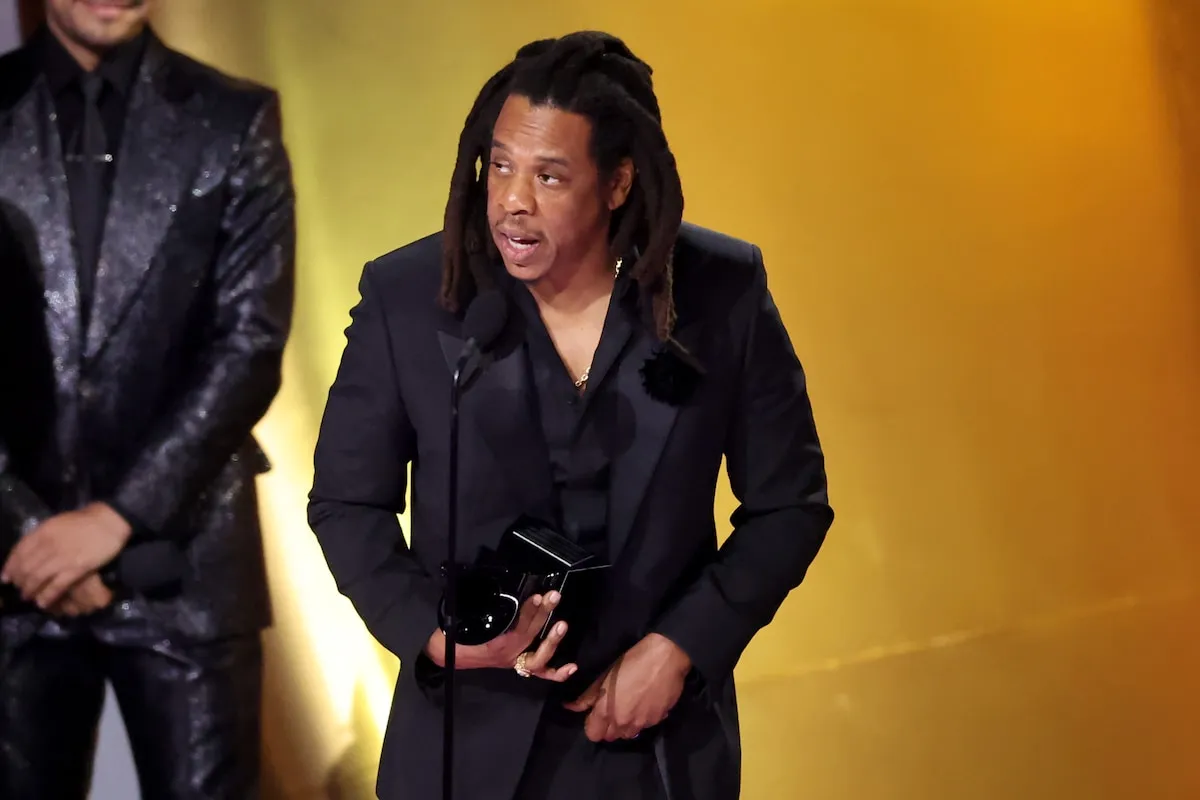JAY-Z Secures Rights to “Reasonable Doubt” Amid Dame Dash’s Roc-A-Fella Share Auction.
In a strategic legal move, JAY-Z has taken steps to ensure that the legacy of his debut album, Reasonable Doubt, remains under his control, regardless of who acquires Dame Dash’s shares of Roc-A-Fella Records. According to legal documents uncovered by TMZ Hip Hop, Hov’s attorneys have informed the courts that the copyright ownership of Reasonable Doubt—including the album title and all 14 individual tracks—will revert to “Shawn Carter/JAY-Z” once Roc-A-Fella’s ownership of these rights ends in 2031.
This legal filing, while routine, has gained significant attention due to the ongoing saga surrounding Dame Dash’s stake in Roc-A-Fella Records. The label, co-founded by JAY-Z, Dame Dash, and Kareem “Biggs” Burke in 1994, has been at the center of a legal battle, leading to Dash’s 33.3% share being put up for public auction. The auction, set for August 29 in New York City, is intended to satisfy Dash’s $823,000 debt to movie producer Josh Weber, resulting from a copyright infringement and defamation lawsuit related to the 2016 film Dear Frank.

Despite the high-profile nature of the auction, the sale of Dash’s shares may not be as lucrative as it appears. As reported by TMZ, the purchaser will only gain minority ownership in Roc-A-Fella and will have no official say in company decisions, which require a majority vote. Furthermore, the financial returns on the shares are limited, as the master ownership for the company is set to expire in the near future, potentially diminishing future revenue opportunities.
“There’s also an expiration date on the master ownership for the company, which means revenue and the only asset doesn’t have many years left,” a source revealed to TMZ. This limitation further reduces the appeal of the shares to potential buyers, who may be deterred by the short window of profitability.
Earlier this year, after a judge ordered Dash to sell his shares to cover his debt, JAY-Z and Biggs objected to the sale. They argued that Roc-A-Fella’s bylaws require board approval before any stakes in the company can be sold. However, U.S. Magistrate Robert W. Lehrburger ruled that Dash’s one-third ownership could indeed be seized to fulfill the judgment, as it is considered his personal property.
In a detailed 15-page decision, Lehrburger criticized JAY-Z and Biggs for creating a “no sell-off” clause during a 2021 board meeting, which Dash did not attend or vote on. The judge ordered Roc-A-Fella to deliver Dash’s stock certificate to the U.S. Marshals Service, enabling the auction to proceed within 180 days.

JAY-Z and Biggs’ primary concern regarding the auction is not rooted in defending Dash but rather in protecting Roc-A-Fella’s intellectual property from falling into the hands of an outsider. The idea of a third party potentially acquiring a stake in such a historically significant label has raised alarms within the company. To address these concerns, Lehrburger suggested that JAY-Z and Biggs could participate in the auction themselves and place the winning bid, thereby retaining control of the company’s valuable assets.
As the August 29 auction approaches, the future of Roc-A-Fella Records and its legendary catalog hangs in the balance. JAY-Z’s proactive legal maneuvering to secure the rights to Reasonable Doubt underscores the importance of protecting his artistic legacy, even as the label he co-founded faces new ownership challenges. While the auction may not yield a windfall for potential buyers, the drama surrounding Dame Dash’s shares serves as a stark reminder of the complex business entanglements that can arise in the world of music. The outcome of this sale could have lasting implications for the future of Roc-A-Fella and the iconic music it represents.





